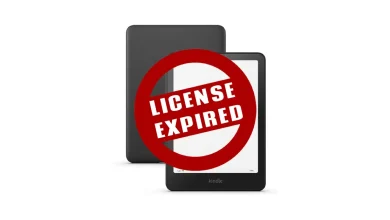
We independently review all recommendations. Purchases made through our links may earn us an affiliate commission. Here’s how it works.
Amazon’s been getting a lot of heat lately. Apparently, a bunch of people are getting locked out of their accounts and can’t access their Kindle eBooks. This issue, dubbed “Amazon Locking Accounts,” has been a pretty big deal over the last few days, with complaints flooding places like Reddit and social media. People are frustrated because they’ve spent money on these books and now they can’t even read them. What’s up with that?
Amazon Locking Accounts Spark Frustration Among Kindle Users
A lot of users think the lockouts started after Amazon’s “Stuff Your Kindle Day” event, where they gave away a ton of free eBooks. Some folks downloaded a bunch of freebies, and others barely downloaded a few, but either way, something triggered Amazon’s fraud detection system, and bam—account locked. It’s kind of unclear what exactly caused it though.
Once their accounts were locked, these readers couldn’t get into their Kindle libraries—even on devices where they had already downloaded the books. For anyone having tech issues with their devices, it might help to check out common Kindle software fixes. If you can’t get in, one workaround is just keeping your devices offline, so they don’t try to sync with Amazon’s servers. Super annoying though, right?
A Worrying Implication: The Risks of Amazon’s Closed Ecosystem
The real kicker here is the whole problem with Amazon’s closed system. If they lock you out, you basically lose access to all those books you bought, which for some people could be years of purchases. This is making people question the whole DRM thing that Amazon uses. It keeps you stuck in their ecosystem, meaning you can’t back up or transfer your books freely. Even worse, Amazon recently got rid of the “download and transfer via USB” feature on newer Kindles. So, now you can’t even store your books offline on older devices. If you’re feeling fed up with this, there are some cool alternatives like the Hanvon Clear 7 Turbo or the Guowen R8 E-Note. At least they don’t trap you in Amazon’s world.
Mixed Responses from Amazon and Affected Users
As for Amazon, they’re trying to make things right—some people got their accounts unlocked after reaching out to customer service or showing proof of purchase. Others said their accounts just unlocked on their own. So yeah, it seems like they’re working on it, but honestly, it’s left a lot of people worried about how much control Amazon has over their eBooks. Some are even hesitant to grab any free books now, just in case their accounts get locked again.
To keep people from jumping ship, Amazon’s been offering deals like the Kindle Unlimited 3-month subscription, but let’s be real—some customers probably aren’t too thrilled about signing up for more of that when their accounts are still in limbo. You can check out the offer here.
Calls for Change in eBook Practices
This issue has led to more talks about DRM. Some people say it is just a way for companies like Amazon to limit what customers can do with their digital content. Many users are now asking if it is worth staying with services that have strong rules. If you use a Kindle, it might be a good idea for you to think about backup options. Some eReaders, like the Kobo Clara Colour, have a more open setup if you want to check out something new.




